Kenya
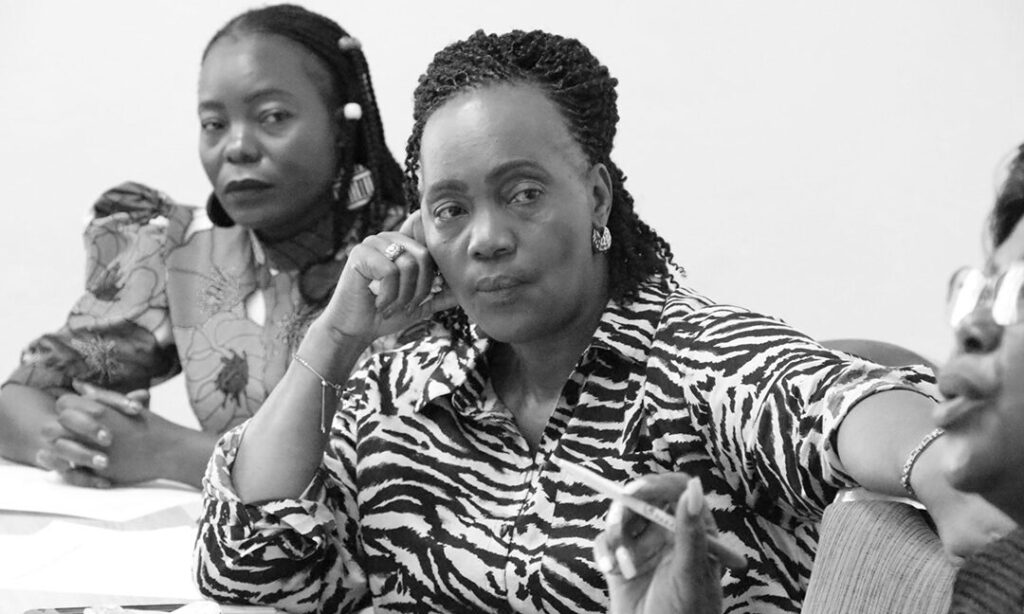
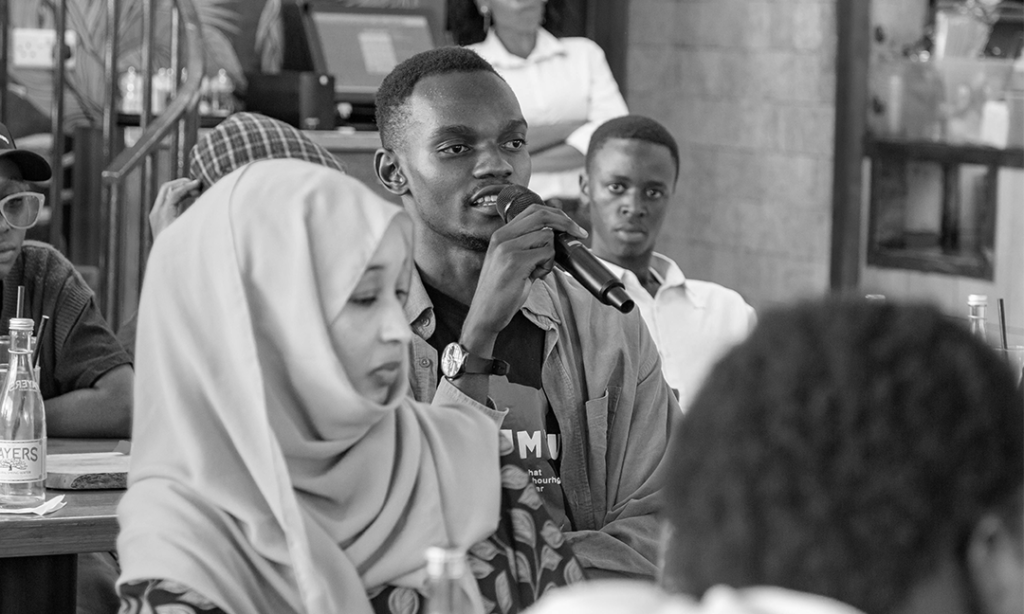
- Le NIMD au Kenya : En un coup d'œil
- Notre action
- Comment nous procédons
- Rencontrer l'équipe
Objectif principal
Combler le fossé entre la population, les partis politiques et les hommes politiques du Kenya.
Résultats
Notre école et académie de la démocratie fournit aux participants les outils et la confiance nécessaires pour s'engager dans la politique et contribuer de manière significative à leurs communautés, en favorisant un réseau diversifié de jeunes gens compétents et engagés qui transcendent les clivages politiques traditionnels. Ce réseau est prêt à travailler ensemble pour renforcer la confiance dans la politique et répondre aux besoins du peuple kenyan.
En collaboration avec notre SIDPAK nous soutenons et formons les ligues des partis politiques pour les femmes, les jeunes et les personnes handicapées afin d'encourager les partis à prendre des mesures en faveur d'une plus grande inclusion. Parmi les nombreux résultats obtenus, le parti au pouvoir, l'UDA, inclut désormais des ligues de femmes, de jeunes et de personnes handicapées dans ses campagnes de recrutement. De telles actions contribuent à renforcer la confiance dans le système politique, en montrant aux citoyens que les partis s'engagent à représenter la diversité de leurs voix.
Le NIMD et l'Association des jeunes parlementaires du Kenya ont organisé un dialogue Youth Bunge, un forum conçu pour rassembler les jeunes et les dirigeants afin de co-créer des politiques. À l'issue de la session, le Parlement kenyan a adopté une résolution commune des participants portant sur la participation politique inclusive et la conservation de l'environnement, ce qui constitue une étape importante vers l'intégration du point de vue des jeunes dans les processus législatifs.
Kenya : Contexte politique
En Afrique de l'Est, le Kenya est reconnu comme une démocratie stable et une voix influente. Cependant, à l'intérieur du pays, les loyautés politiques sont souvent façonnées par la diversité ethnique, plutôt que par les politiques ou les idées. Cet alignement ethnique alimente la polarisation et maintient le pouvoir concentré entre les élites traditionnelles.
Dans ce contexte, l'évolution politique récente du Kenya a été marquée à la fois par des tensions et des réformes. L'année 2018 "poignée de main"La rencontre entre le président Uhuru Kenyatta et le chef de l'opposition Raila Odinga a marqué une tentative significative de surmonter les divisions. Pourtant, la méfiance entre les factions politiques reste profondément ancrée. Et les élections de 2022, bien que pacifiques, ont mis en évidence les préoccupations persistantes concernant la transparence politique et la représentation équitable, en particulier parmi les femmes, les jeunes et d'autres groupes structurellement exclus.
Il est essentiel de combler ces fossés - en jetant des ponts à la fois entre les partis politiques et entre les citoyens et les dirigeants politiques - pour renforcer la confiance dans le processus démocratique. En renforçant les liens et la compréhension mutuelle entre tous les acteurs politiques, le Kenya peut favoriser la confiance nécessaire pour renforcer l'inclusivité et la transparence de sa démocratie.
Notre action
Construire des ponts entre les gens est dans notre ADN au NIMD.
En effet, depuis que nous avons commencé à travailler au Kenya en 2003, notre principal objectif a été d'encourager la confiance et de soutenir la participation politique des groupes structurellement exclus.
Pour y parvenir, il faut adopter une approche globale. Nous veillons, par exemple, à ce que des voix diverses - comme celles des jeunes, des femmes et des personnes handicapées - soient prises en compte. Nous savons en effet que la confiance dans la politique ne peut se développer que si tous les groupes sont entendus.
Nous veillons également à ce que les responsables politiques soient tenus de rendre compte de leur travail et de leurs décisions, en travaillant avec des partenaires tels que Mzalendo, pour que tous les Kenyans aient accès à des informations utiles sur les institutions qui les gouvernent.
Enfin, nous travaillons sur le dialogue, en aidant les mouvements politiques disparates à trouver un terrain d'entente afin qu'ils puissent travailler ensemble dans l'intérêt de tous les habitants du Kenya.
La confiance dans la politique ne peut se développer que lorsque tous les groupes sont entendus.
Ce que nous faisons : En chiffres
Comment nous procédons
Une politique réactive
En 2019, le NIMD a conclu un partenariat avec l'organisation de soutien parlementaire Mzalendo. Notre collaboration vise à accroître la transparence et l'ouverture des parlements en rapprochant les citoyens de leurs représentants.
Ensemble, nous soutenons la participation du public, fournissons des informations accessibles en ligne sur les performances et le fonctionnement du parlement et plaidons en faveur de la transparence.
Par exemple, les députés peuvent utiliser les plateformes de médias sociaux de Mzalendo pour expliquer leurs positions dans des débats spécifiques, présenter leur travail quotidien et discuter de certains des défis auxquels ils sont confrontés.
Parallèlement à son travail avec les députés, le NIMD et ses partenaires travaillent également avec les partis politiques et l'Office of the Registrar of Political Parties - un organisme de réglementation au Kenya chargé de superviser l'enregistrement, la réglementation et la conformité des partis politiques conformément au cadre juridique du pays. En fournissant une formation et un soutien, nous aidons ces partis à se conformer aux lois sur la représentation des femmes, des jeunes et des personnes handicapées.
Tout au long de ce travail, nous mettons l'accent sur la transparence, la responsabilité et l'inclusion, en encourageant les députés et les partis à agir en fonction des besoins du public. En retour, lorsque les citoyens peuvent voir ce que font leurs représentants - comment ils représentent leurs électeurs et s'efforcent de répondre à leurs besoins - la confiance dans le système politique s'accroît. Cette confiance incite les citoyens à soutenir les partis et les candidats en fonction de leurs politiques et de leurs idéaux, plutôt qu'en fonction de critères ethniques, ce qui contribue à une démocratie plus inclusive et davantage axée sur les problèmes.
Éducation à la démocratie
Au NIMD Kenya, l'éducation à la démocratie est au cœur de notre ambition de favoriser la confiance au-delà des clivages politiques.
Notre école de la démocratie
L'école de la démocratie du NIMD Kenya rassemble de jeunes (aspirants) dirigeants de partis politiques, d'organisations de la société civile et d'universités, en mettant l'accent sur les jeunes issus de groupes sous-représentés et sur ceux qui vivent avec un handicap.
Au cours de deux retraites intenses de six jours, les participants sont formés par des experts nationaux sur des sujets tels que le leadership et l'éthique, l'histoire politique du Kenya, le genre et l'inclusion. Ils acquièrent des compétences importantes telles que la prise de parole en public, le dialogue et la manière de communiquer efficacement leur programme.
Le parcours d'apprentissage comprend également le mentorat de personnalités influentes et d'anciens élèves. Enfin, les participants ont la possibilité d'engager un dialogue intergénérationnel avec des politiciens établis - une occasion importante d'élargir leurs réseaux et de faire entendre leur voix.
En commun
Ce que notre école et notre académie ont en commun, c'est l'accent mis sur l'établissement de relations entre les participants. En tissant des liens au cours de leur expérience d'apprentissage commune - et en s'engageant dans des activités extrascolaires - les participants développent un sentiment d'appartenance à la communauté.
Ainsi, malgré leurs différences, nos participants repartent avec des liens durables, un engagement à coopérer de manière respectueuse au-delà des clivages et un solide réseau de dirigeants compétents et motivés. Ensemble, ils sont unis dans leur volonté de favoriser une démocratie plus inclusive et plus réactive au Kenya.
En encourageant l'engagement politique et en promouvant le leadership démocratique, nous dotons ces jeunes leaders des connaissances et des compétences nécessaires pour contribuer efficacement à la vie politique, favoriser l'engagement en faveur des valeurs démocratiques et contribuer à long terme à un changement positif.
Notre Académie de la Démocratie
Tout comme notre école de la démocratie, l'académie de la démocratie du NIMD sert de plateforme pour la promotion des valeurs démocratiques et le perfectionnement des compétences de ses participants.
Par l'intermédiaire de l'Académie, nous ciblons les députés de l'ensemble du spectre politique, en particulier ceux qui représentent des groupes structurellement exclus, notamment les femmes, les jeunes et les personnes handicapées.
Ces participants se réunissent pour six sessions d'apprentissage. En leur offrant une expérience d'apprentissage approfondie et séquentielle, le NIMD vise à renforcer leur capacité à façonner les politiques nationales et, par conséquent, l'avenir de la démocratie dans leur pays.
"Je veux laisser l'espace dans lequel je travaille dans un meilleur état que celui dans lequel je l'ai trouvé. "
Irene Mayaka, membre de l'Assemblée nationale du Kenya, participante à la Kenya Democracy Academy
La jeunesse en politique
75% de la population du Kenya a moins de 35 ans.
Pourtant, malgré leur nombre, les jeunes kenyans sont confrontés à de multiples obstacles qui les empêchent de participer à la vie politique. Il s'agit notamment de la stigmatisation par les chefs de parti et le gouvernement. coûts financiers élevés de la participation politique.
Il en résulte un désengagement de la politique traditionnelle, mais pas le silence. Si de nombreux jeunes sont moins enclins à voter ou à se présenter aux élections, ils se font de plus en plus entendre en ligne. Par le biais de canaux informels, ils exigent des changements et font entendre leur voix dans leurs communautés et dans la vie publique.
Au NIMD, nous nous efforçons de jeter des ponts entre les espaces informels et formels de la politique. Ainsi, les jeunes peuvent continuer à influencer leurs communautés, mais peuvent également choisir d'affirmer leur droit indéniable à participer aux structures politiques formelles.
Nous avons mené des campagnes en ligne pour encourager les jeunes à voter et nous collaborons avec des artistes et des influenceurs pour impliquer les jeunes par le biais de plateformes numériques. Nous ciblons également les jeunes par l'intermédiaire de nos Bunges régionaux - des plateformes de formation qui donnent aux jeunes l'occasion de se familiariser avec les processus et les procédures parlementaires, de nouer des contacts avec des membres du Parlement et de co-créer des recommandations sur des questions qui concernent leur pays
Ces efforts, ainsi que nos écoles de la démocratie, visent à approfondir les compétences et les connaissances des participants et à élargir leurs réseaux afin qu'ils puissent influencer la politique par des voies formelles et informelles.
Les femmes en politique
Au NIMD, nous sommes fermement convaincus que la participation politique des femmes, dans toute leur diversité, est essentielle à toute démocratie inclusive et réactive. Et nous avons une longue histoire de soutien à cet objectif.
En 2010, le NIMD a fait partie d'une large coalition de la société civile qui a réussi à faire pression pour obtenir une clause d'égalité des sexes dans la nouvelle Constitution du Kenya. Cette clause stipule qu'au moins un tiers des membres des organes électifs ou nominatifs doivent être des femmes.
Bien qu'il s'agisse d'une victoire importante, le chemin à parcourir est encore long et le NIMD reste déterminé à obtenir une représentation plus significative des femmes. Nous veillons, par exemple, à ce que les femmes et d'autres groupes structurellement exclus soient représentés dans nos écoles de la démocratie, afin qu'ils acquièrent les connaissances et les compétences dont ils ont besoin pour marquer la politique de leur empreinte.
Mais notre travail vise également à garantir que le sujet reste à l'ordre du jour politique. Pour que les hommes politiques disposent des informations et de la motivation nécessaires pour faire tomber les barrières culturelles et systémiques à la participation des femmes à la vie politique.
Par exemple, notre étude de 2021 sur les le coût de l'entrée en politiquemenée en partenariat avec Fondation de Westminster pour la démocratieLe projet de loi sur l'égalité entre les femmes et les hommes est un exemple d'obstacles pratiques à la participation des femmes à la vie politique. Et notre La parole est à la parole Le rapport évalue dans quelle mesure le cadre juridique régissant les partis politiques kenyans favorise l'inclusion et la participation des femmes, des jeunes et des personnes handicapées.
Ces études constituent un outil important pour faire pression, éclairer le débat et susciter des changements parmi les hommes politiques et au sein des institutions politiques.
"La participation politique des femmes, dans toute leur diversité, est essentielle à toute démocratie inclusive et réactive. "
Dialogue
En 2023, des manifestations de grande ampleur ont éclaté dans tout le Kenya, alimentées par l'augmentation du coût de la vie et le mécontentement politique. En réponse, les membres des deux coalitions parlementaires ont formé un comité de dialogue national pour aborder ces questions, ouvrant ainsi des discussions plus larges sur les réformes.
Dans ce contexte, la NIMD a commencé à soutenir le Comité de liaison des partis politiques - une plateforme qui rassemble des représentants de tous les partis politiques et des principaux organismes électoraux. Grâce à cette plateforme, la NIMD encourage le dialogue et la collaboration qui sont essentiels pour combler le fossé entre les partis, favoriser la compréhension mutuelle et créer une base pour des réformes politiques constructives et inclusives.
Ces efforts de promotion de la confiance et de la connexion sont encore renforcés par nos dialogues multipartites, qui réunissent des politiciens, des citoyens et des membres de la société civile afin d'établir un consensus et une collaboration au-delà des clivages. En rassemblant les voix de l'ensemble de la société, nos dialogues contribuent à combler les fossés, à nourrir une culture du consensus et de la collaboration, et à jeter les bases de politiques inclusives, axées sur les problèmes, qui renforcent la démocratie kenyane.
Rencontrer l'équipe
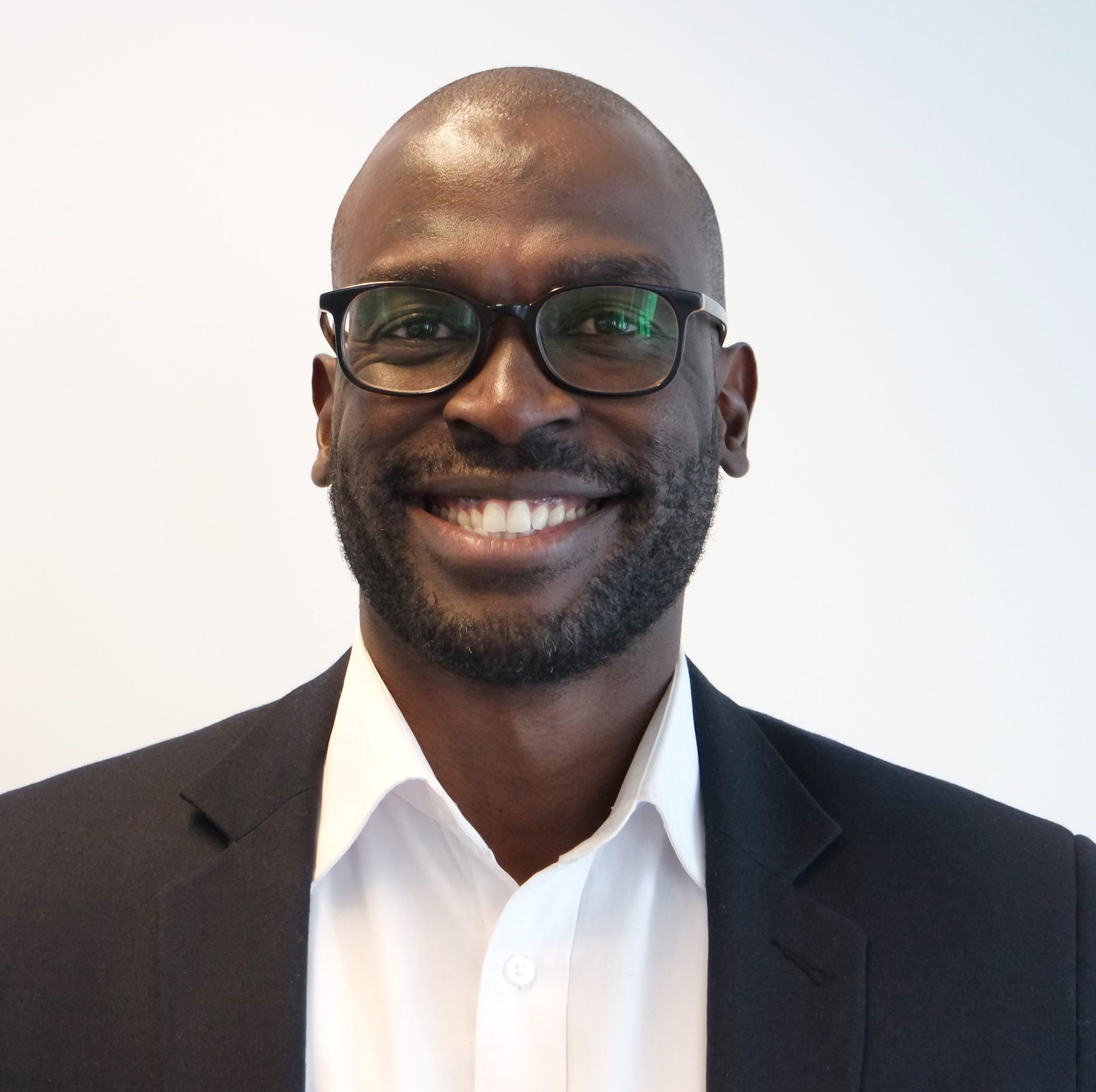 Ronnie Ojwang
Directeur national, NIMD Kenya
En savoir plus
Ronnie Ojwang
Directeur national, NIMD Kenya
En savoir plus
Contactez directement le NIMD Kenya via nimdkenya@nimd.org
Ronnie Ojwang est le directeur national du bureau du NIMD au Kenya. Il a plus de 12 ans d'expérience dans le développement des partis politiques, le renforcement de la société civile, l'inclusion des jeunes, la prévention et la lutte contre l'extrémisme violent, la recherche, les médias et la communication stratégique. Il a travaillé et a été consultant pour un certain nombre d'organisations internationales, notamment le National Democratic Institute, le PNUD Kenya, BBC Media Action, Mercy Corps et DAI Global au Kenya et dans la région de la Corne de l'Afrique.

Contactez directement le NIMD Kenya via nimdkenya@nimd.org
Ronnie Ojwang est le directeur national du bureau du NIMD au Kenya. Il a plus de 12 ans d'expérience dans le développement des partis politiques, le renforcement de la société civile, l'inclusion des jeunes, la prévention et la lutte contre l'extrémisme violent, la recherche, les médias et la communication stratégique. Il a travaillé et a été consultant pour un certain nombre d'organisations internationales, notamment le National Democratic Institute, le PNUD Kenya, BBC Media Action, Mercy Corps et DAI Global au Kenya et dans la région de la Corne de l'Afrique.
Avec qui nous travaillons

Notre partenaire de longue date au Kenya, Mzalendo Trust, est une organisation de soutien parlementaire non partisane qui vise à faciliter la participation du public aux processus parlementaires par le biais du partage d'informations, de la recherche et de la mise en réseau.
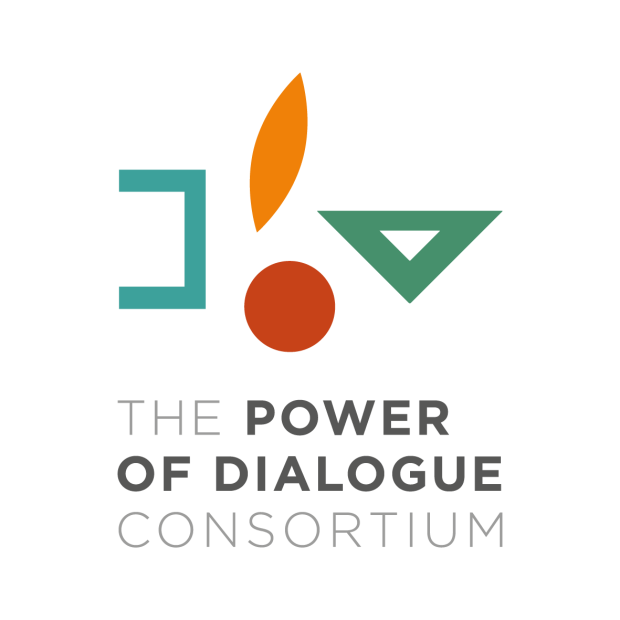
Le travail du NIMD au Kenya est financé par le ministère néerlandais des affaires étrangères dans le cadre du programme Le pouvoir du dialogue programme. Le consortium "Power of Dialogue" est composé du NIMD, Institut Gorée, Akina Mama wa Afrikaet Centre des Études Méditerranéennes InternationalesL'objectif est d'améliorer la collaboration entre les acteurs politiques et civiques afin qu'ils participent à des processus politiques responsables.

Le NIMD est fier d'être membre du Consortium SIDPAK. Le consortium contribue au développement d'acteurs politiques inclusifs et démocratiques au Kenya et est financé par l'Union européenne. Les autres membres du Consortium sont DIPD, le centre d'Oslo, Mzalendo et CMD-Kenya.
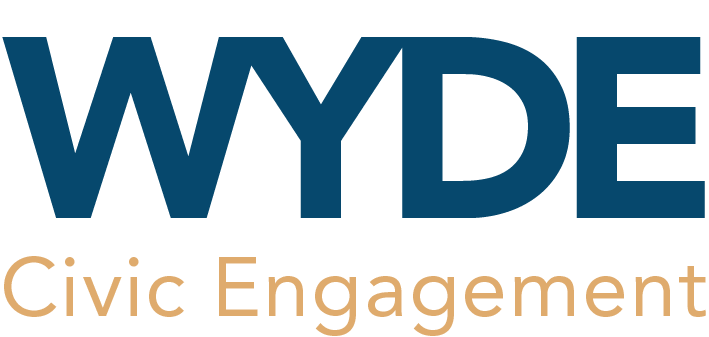
Les Engagement civique de l'AEJD est une composante de l'Initiative Jeunesse et Femmes en Démocratie (WYDE) de la Commission européenne. L'initiative WYDE est soutenue par l'Union européenne et le Conseil de l'Europe. Partenariat européen pour la démocratie. Les partenaires du NIMD pour la WYDE sont les suivants Fondation de Westminster pour la démocratie et Démonstration Finlande.

 X
X